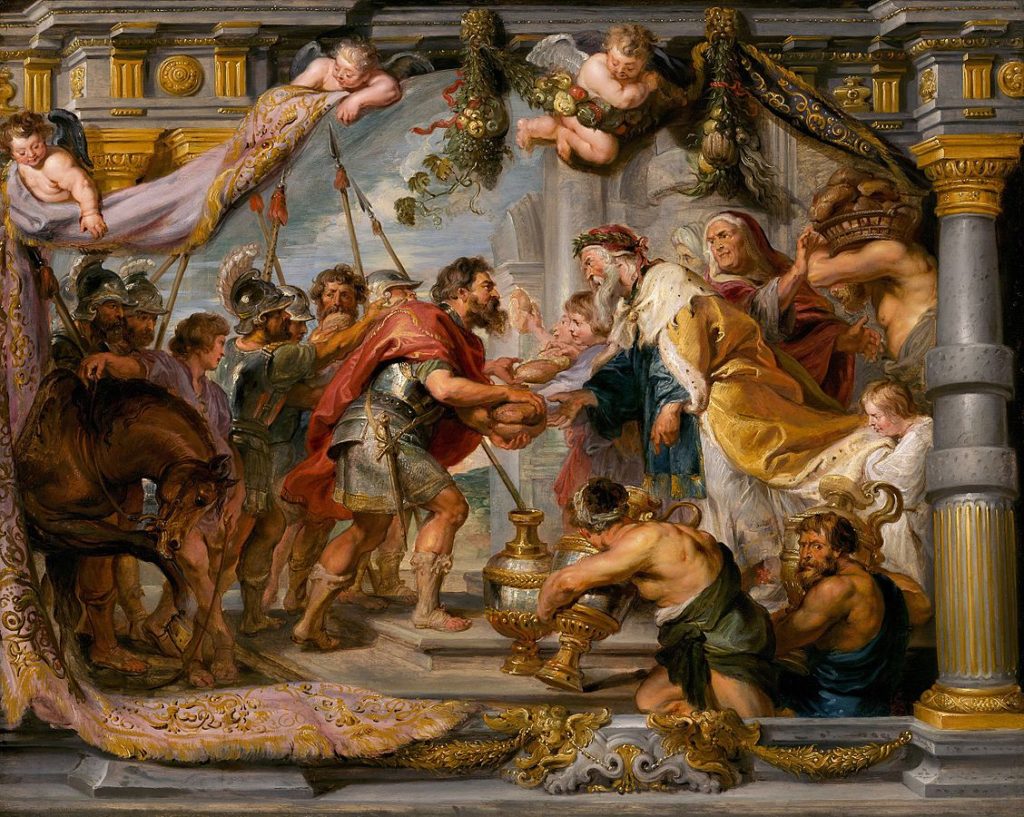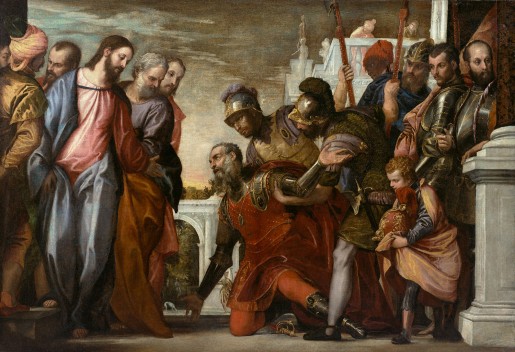Whom do men say that I the Son of man am? But whom say ye that I am? [1]Matthew 16:13,15
Those questions posed Christ Jesus to his disciples.

In the course of that jaw-jaw, he implies that there must be a difference in how he is known by those who have communion with him and those on the fringes; that a true knowledge of his nature and Ministry might only be spiritually discerned.
He wasn’t some great Jewish figure from the past, as his observers supposed. He was an eminently different phenomenon. Yet time and again he told his audience to search the scriptures, for those spoke concerning him.
In fact we’re told he took his disciples through scriptures to bring them to some appreciation of his calling but we’re not invited to those excursions. Some glimpses we do have, none more so than on one of his fruitless exchanges with the scribes:
“Your father Abraham rejoiced to see my day: and he saw it, and was glad.” [2]John 8:56
Jesus was an eminently different phenomenon
The Hebrew scriptures have no records of any such meetings between the patriarch and one called Yeshua; and theophanies are too effervescent to be tangible. The statement however implies what Bishop Desmond Tutu in God is not a Christian described as a revelatory experience that predated Christianity (and, for good measures, Judaism); that Abraham had a pre-incarnate fellowship with the Word of God.
What form did that fellowship take? Around what traditions or covenant was it based? We do not know. The closest we get to the most basic knowledge of a pre-Sinai, Jehovah-instituted, fellowship is the mention of a religious order led by a priest of God called Melchizedek.
Melchizedek was mentioned in a few verses of the Hebrew Bible, the first when he blessed the patriarch Abraham, [3]Genesis 14:18-20 and the second time as the subject in whose Order an eternal priest would be ordained. [4]Psalm 110:4
These scriptures are important for a number of reasons. To begin with, they challenge a maxim we take for granted. We often refer to Abraham as, amongst others, the father of monotheism. His belief in the one God was a challenge to ancient Near East cultures that had gods for every season, event and experience. But by the virtue of the office that Melchizedek held, it is safe to conclude that Abraham did not gift monotheism to his generation.
Melchizedek led an order with adherents.
“For every high priest taken from among men is ordained for men in things pertaining to God.” [5]Hebrews 5:1
He and those for whom he was ordained a priest worshipped the same God as Abraham. His ministry presumably predated the calling of Abraham. And he did such a good job that God blessed his ministry forever.
“The LORD hath sworn, and will not repent, Thou art a priest for ever after the order of Melchizedek.” [6]Psalm 110:4
Therefore there are people around the world who remain in communion with God in ways not necessarily inspired by the revelation given to Israel
Implicit in the Psalmist revelation is that God had fellowship with gentiles outside of His covenant with Israel, even if we do not have the benefit of a documentation of such relationships. The people of ancient Israel were only pre-occupied with celebrating the uniqueness of their relationship with God. What the Psalmist wrote renders claims of the uniqueness of ancient Israel as a people of God as myth.
The prophets of Israel revealed this in various ways. Prophet Amos gave a counter-narrative to both the Deuteronomist account of the Philistines as the Godless other, [7]Judges 15:18; 1 Samuel 14:6; 2 Samuel 1:20 and St Paul’s claim that those who were not Jews lacked the presence and promises of God in their lives. [8]Ephesians 2:12
In his diatribe against Israel, Prophet Amos said:
“Are ye not as children of the Ethiopians unto me, O children of Israel? saith the LORD. Have not I brought up Israel out of the land of Egypt? and the Philistines from Caphtor, and the Syrians from Kir?” [9]Amos 9:7
The Deuteronomist was wrong. St Paul got it wrong too. Gentiles weren’t always the ‘godless’ Other. Going by accounts in the book of Joshua 13:1-6, it would appear that the bringing of the Philistines from Caphtor predated the bringing of Israel from Egypt; the implication being that the work of God in the experience of the Philistines as a nation started before the ‘burning bush’ revelation. Abimelech the Philistine King had vision and counsel of God before Isaac was conceived, never mind Jacob. The Philistines knew God before the children of Israel as a nation, but we know nothing about that relationship, because, as mentioned above, the Bible is largely, exclusively, about the covenant relationship between Heaven and Israel.
Melchizedek and the people he led were in a relationship with God before the people of Israel were found of God, and whatever it’s nature and terms, it was one God was well pleased to renew continually. Therefore there are people around the world who remain in communion with God in ways not necessarily inspired by the revelation given to Israel.
The writer of the book of Hebrews links the Church of our Lord Jesus Christ to the order of Melchizedek, but goes on to fudge his theory over by proposing supersession. The Lord himself made no mention of Melchizedek throughout his earthly ministry. But in saying that Abraham knew him long before the Sinaitic covenant was established, he implied he headed a pre-existing fellowship. And he envisioned a reincarnation of that fellowship in a manner that ran contrary to the visions and expectations of the prophets of Israel.
Whereas such prophets as Isaiah and Micah looked forward to a time when all would head to the mountain of the Lord, to the house of Jacob to be taught of God, [10]Isaiah 2:2-4; Micah 4:1-2 Christ thought and taught different.
The Church need not be the ‘New Israel’ to be blessed and to be a blessing
At his meeting with the Samaritan lady by the well he invited you and I to a fellowship with God that would neither be built around Israel nor the Sinaitic covenant. In his words:
“Jesus saith unto her, Woman, believe me, the hour cometh, when ye shall neither in this mountain, nor yet at Jerusalem, worship the Father.…the hour cometh, and now is, when the true worshippers shall worship the Father in spirit and in truth…God is a Spirit: and they that worship him must worship him in spirit and in truth.” [11]John 4:21-24
The mandate of Christ’s priesthood preceded the Sinaitic covenant and ought therefore not be bound by it. The Church need not be the ‘New Israel’ to be blessed and to be a blessing. That’s a throwback to the sibling rivalry that bedevilled Jacob’s relationship with Esau. Jacob coveted the older brother’s privileges without consideration for calling and purpose. He’s the forerunner to many who seek blessing for the sake of blessing.
Such debates as the one about the place of the laws of Moses in the church of our Lord Jesus Christ are much ado about nothing. Those laws spoke to how Israel might remain and prosper in Canaan, and nothing to do with a Japanese who is called by God to an essentially spiritual fellowship. Christ Jesus is God’s invitation to us to step up and start a spirit-filled, revelatory fellowship with heaven.


